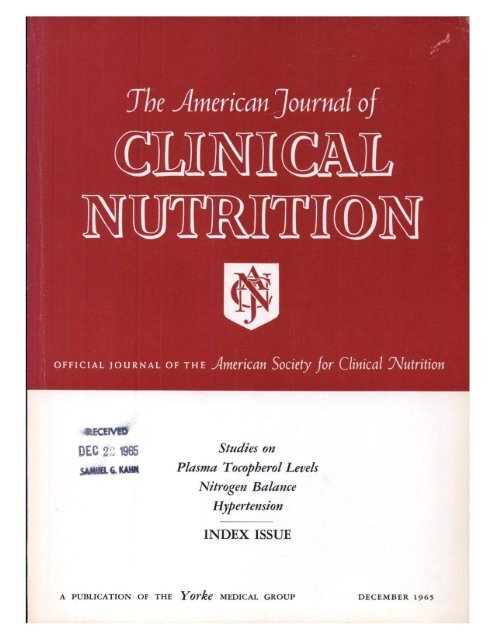Association of adherence to Mediterranean diet and changes over time with all-cause mortality in older adults: the Seniors-ENRICA cohorts
IF 6.5
1区 医学
Q1 NUTRITION & DIETETICS
引用次数: 0
Abstract
Background
Despite the well-recognized nutritional quality and health benefits of the Mediterranean diet (MD), its adherence appears to be declining. However, the extent of this decline and its relationship with mortality in the older population remains unclear.
Objectives
This study aims to analyze the associations between adherence to MD and its changes over time with all-cause mortality in older adults.
Methods
We used data from 3518 and 3273 older adults, aged 60–96 y at baseline, participating in the Seniors-ENRICA-1 and 2 cohorts, respectively. Adherence to MD was assessed by the 14-item Mediterranean Diet Adherence Screener (MEDAS) and classified as low (<7 points), moderate (7–8 points), and high (≥9 points). All-cause mortality was ascertained up to 31 January, 2024. Analyses were performed using Cox regression models adjusted by main confounders.
Results
Baseline [n = 6083; follow-up of 7.9 y; per 1-point: hazard ratio (HR) = 0.92; 95% confidence interval (CI): 0.89, 0.95] and changes (n = 2070; follow-up of 11.2 y; per 1-point increase: HR = 0.91; 95% CI: 0.86, 0.97) in MEDAS were associated with a lower mortality. At baseline, moderate (HR = 0.87; 95% CI: 0.77, 0.99) and high (HR = 0.70; 95% CI: 0.59, 0.82) adherence to MD were associated with lower mortality, compared with low adherence. In addition, participants who maintained high adherence to MD in both examinations had the lowest mortality compared with consistently low adherence (HR = 0.54; 95% CI: 0.38, 0.76). Baseline and maintained adherence in items of carbonated sweetened beverages (<1 serving/d), fish/seafood (≥3 servings/wk), commercial pastry (<2 servings/wk), and nuts (≥3 servings/wk) was associated with lower mortality.
Conclusions
Initial adherence to MD, as well as subsequent maintained or increased adherence, is associated with lower all-cause mortality in older adults, with some foods as the main drivers.
老年人坚持地中海饮食及其随时间变化与全因死亡率的关系:senior - enrica队列。
背景:尽管地中海饮食(MD)的营养质量和健康益处得到了广泛认可,但其依从性似乎正在下降。然而,这种下降的程度及其与老年人口死亡率的关系仍不清楚。目的:分析老年人坚持MD及其随时间变化与全因死亡率之间的关系。方法:我们使用了3518名和3273名老年人的数据,基线年龄为60-96岁,分别参加了senior - enrica -1和2队列。通过14项地中海饮食依从性筛查(MEDAS)评估MD的依从性,并将其分类为低(结果:基线(n=6083;随访7.9年;每1点:风险比[HR]=0.92;95%置信区间[CI] 95%CI 0.89-0.95)和变化(n=2070;随访11.2年;每增加1点:HR=0.91;95%CI 0.86-0.97)与较低的死亡率相关。基线时,中度(HR=0.87;95%CI 0.77-0.99)和高(HR=0.70;(95%CI 0.59-0.82)与低依从性相比,坚持MD与较低的死亡率相关。此外,在两项检查中保持高依从性的参与者与持续低依从性的参与者相比,死亡率最低(HR=0.54;95%置信区间:0.38—-0.76)。结论:最初坚持服用无糖饮食,以及随后保持或增加坚持服用,与老年人全因死亡率降低有关,其中一些食物是主要驱动因素。
本文章由计算机程序翻译,如有差异,请以英文原文为准。
求助全文
约1分钟内获得全文
求助全文
来源期刊
CiteScore
12.40
自引率
4.20%
发文量
332
审稿时长
38 days
期刊介绍:
American Journal of Clinical Nutrition is recognized as the most highly rated peer-reviewed, primary research journal in nutrition and dietetics.It focuses on publishing the latest research on various topics in nutrition, including but not limited to obesity, vitamins and minerals, nutrition and disease, and energy metabolism.
Purpose:
The purpose of AJCN is to:
Publish original research studies relevant to human and clinical nutrition.
Consider well-controlled clinical studies describing scientific mechanisms, efficacy, and safety of dietary interventions in the context of disease prevention or health benefits.
Encourage public health and epidemiologic studies relevant to human nutrition.
Promote innovative investigations of nutritional questions employing epigenetic, genomic, proteomic, and metabolomic approaches.
Include solicited editorials, book reviews, solicited or unsolicited review articles, invited controversy position papers, and letters to the Editor related to prior AJCN articles.
Peer Review Process:
All submitted material with scientific content undergoes peer review by the Editors or their designees before acceptance for publication.

 求助内容:
求助内容: 应助结果提醒方式:
应助结果提醒方式:


